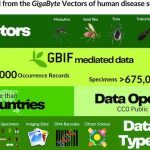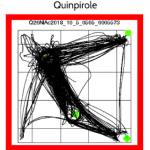Latest posts
1,600 plant extracts reveal their secrets
Hans Zauner - January 18, 2023

A GigaScience Data Note presents a searchable library of spectra and molecules found in a collection of 1,600 plant extracts.
Celebrating and innovating: This was 2022 at GigaScience Press
Hans Zauner - December 20, 2022

It was a year to remember, for more than one reason: 2022 marked the 10th anniversary of GigaScience‘s launch. The journal’s younger sibling GigaByte got an award and continued to innovate with living documents and its first trilingual article. And we published lots of memorable research, featuring, for example, a giant tortoise and 26 deadly […]
What’s your poison? Venom composition of 26 deadly snakes
Hans Zauner - December 14, 2022

The Center for Antibody Technologies headed by Professor Andreas Laustsen-Kiel (Technical University of Denmark) used high-throughput methods to systematically analyze the venoms of the 26 most deadly snakes in sub-Saharan Africa. The results are now published in Gigascience. Each year, around 500,000 people in sub-Saharan Africa suffer from snake bites, causing an estimated 7,000 to […]
The first English-Spanish-Ukrainian Publication. How to publish multilingual articles with GigaByte
Scott Edmunds - November 28, 2022

GigaByte this week marks the first time multilingual articles have been simultaneously published in English, Spanish and Ukrainian. Showcasing a novel and award winning feature from our publishing platform.
Second call (and webinar) for GigaByte’s vectors of human disease series
Scott Edmunds - November 6, 2022

TDR, GBIF and GigaScience Press have announced a second call (and webinar) for the GigaByte series publishing new datasets for research on vectors of human diseases.
AI Opportunities for Obsessive-Compulsive Disorder. Q&A with Henry Szechtman
Chris Armit - October 20, 2022

Q&A with Henry Szechtman on his new study providing enormous amounts of rat Obsessive-Compulsive Disorder data, comprising 11.1TB of videography from >2 years of continuous recording .
The Genome of a Gentle Giant
Scott Edmunds - October 14, 2022

Researchers have published a new chromosome scale reference genome for the Aldabra giant tortoise, providing a much needed genetic resource for rescue and rewilding efforts.
Improvements for Man and Machine in Scientific Publishing
Scott Edmunds - October 5, 2022

Frictionless Data improves not just machine readability of scientific articles, but also enables humans to directly interact with the data within the article itself. A new article in GigaByte demonstrates frictionless data can help bring papers to life with interactive figures.
The Importance of Data Sharing in Neuroscience – GigaScience at INCF 2022
Chris Armit - September 27, 2022

The International Neuroinformatics Coordinating Facility had its annual INCF 2022 Neuroinformatics Assembly and Chris Armit has a write up of the event.
GigaByte Wins 2022 ALPSP Innovation Award
Scott Edmunds - September 21, 2022

GigaByte Journal wins the ALPSP Innovation Award for their interactive articles and tools aimed at fulfilling the UNESCO Recommendation on Open Science